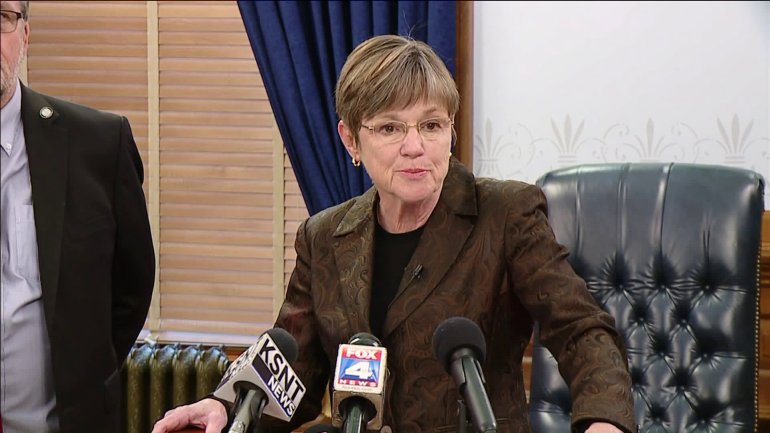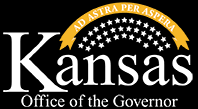Kansas’ higher ed board adopts an anti-DEI policy after pressure from GOP legislators

By JOHN HANNA AP Political Writer
TOPEKA, Kan. (AP) — State universities in Kansas are banned from requiring prospective students, potential hires and staffers seeking promotion to disclose their views on diversity initiatives under a policy change approved Wednesday by the state’s higher education board in response to pressure from the Republican-controlled Legislature.
The Kansas Board of Regents revised policy language that currently emphasizes “multiculturism and diversity” on campus by adding language barring universities from requiring statements “pledging allegiance to, support for or opposition to” diversity, equity and inclusion initiatives in applications for admission, hiring or promotion — without setting any penalties for violations. Board members voiced no opposition during a meeting livestreamed from Fort Hays State University in western Kansas.
Regents Chairman Jon Rolph called the change “our good faith effort in trying to listen to the Legislature” and said discussions about it began last summer.
“It’s not something central to our practices around wanting student success and trying to fulfill our promises to people when we invite them onto our campuses,” said Rolph, CEO of a Wichita-based company operating more than 150 restaurants.
The board’s action came with Democratic Gov. Laura Kelly facing similar pressure to sign the same policy into law. Lawmakers approved a bill with the same restrictions that also would allow a fine of up to $10,000 for a violation.
Separately, the next state budget approved by lawmakers includes provisions that withhold nearly $36 million from the state universities unless they publicly confirm that they don’t have such requirements. Kelly has until Friday to act on the bill and until April 25 to act on the budget provisions.
“I don’t think we ever would have had a state law if this was their policy at the outset,” Republican state Sen. J.R. Claeys, the author of the budget provisions, said ahead of Wednesday’s board discussion.
Republicans in at least 20 states have sought to limit DEI initiatives, arguing that they are discriminatory and enforce a liberal political orthodoxy. Alabama and Utah enacted new anti-DEI laws this year, and a ban enacted in Texas last year has led to more than 100 job cuts on University of Texas campuses.
North Carolina’s governing board for 17 universities, including the University of North Carolina’s flagship Chapel Hill campus, could put the jobs of DEI staff on a path toward elimination through a similar policy change next month.
Claeys, who is also an adviser to GOP Kansas Attorney General Kris Kobach, another DEI critic, said a new regents policy is a positive step because it ensures that all of the universities are following the same guidelines.
But, he added, “I wouldn’t expect them to enact any enforcement on themselves.”
Others say that such policies reflect “a gross misrepresentation” of the purpose behind DEI statements from applicants. The American Psychological Association defines diversity, equity and inclusion as a framework to guide “fair treatment and full participation of all people,” especially those in minority groups.
“The intended purpose is to provide an opportunity for prospective employees to reflect on their experiences and how those experiences complement the mission and values of an institution to support a diverse campus community,” said Paulette Granberry Russell, president of the National Association of Diversity Officers in Higher Educations, in an email statement.
It’s unclear how widespread required DEI-related statements on applications are. GOP lawmakers have said they are responding to complaints and applications they’d seen online, but Rolph said Wednesday that the practice was mostly abandoned over the past year.
Granberry Russell said she was unaware of any university expecting students, job applicants or employees to actually “pledge allegiance to diversity.”
A legislative audit released in February said that just 1.6% of spending by Kansas’ six state universities — $45 million — went to DEI initiatives but noted that each university defined DEI differently. Besides initiatives traditionally seen as DEI, such as training and recruiting, resources included food pantries for poor students and services for military veterans and disabled students.
Kelly told reporters after a Tuesday event that she has not had time to review the anti-DEI bill. While the bill specifically mentions diversity, equity and inclusion, it also says universities cannot require a statement about “any political ideology or movement.”
Last year, Kelly used her power under the state constitution to veto individual budget provisions to scuttle anti-DEI provisions in the current budget, and GOP lawmakers did not have the two-thirds majorities necessary in both chambers to override her actions.
But Kelly also signed legislation last year that bars Kansas officials from using environmental, social and governance factors in investing public funds or deciding who receives government contracts.
“Sometimes those bills, you know, they really don’t do much, and the universities can continue to function the way they need to function,” Kelly said Tuesday. “So, I need to figure out or look at how impactful that will be.”









